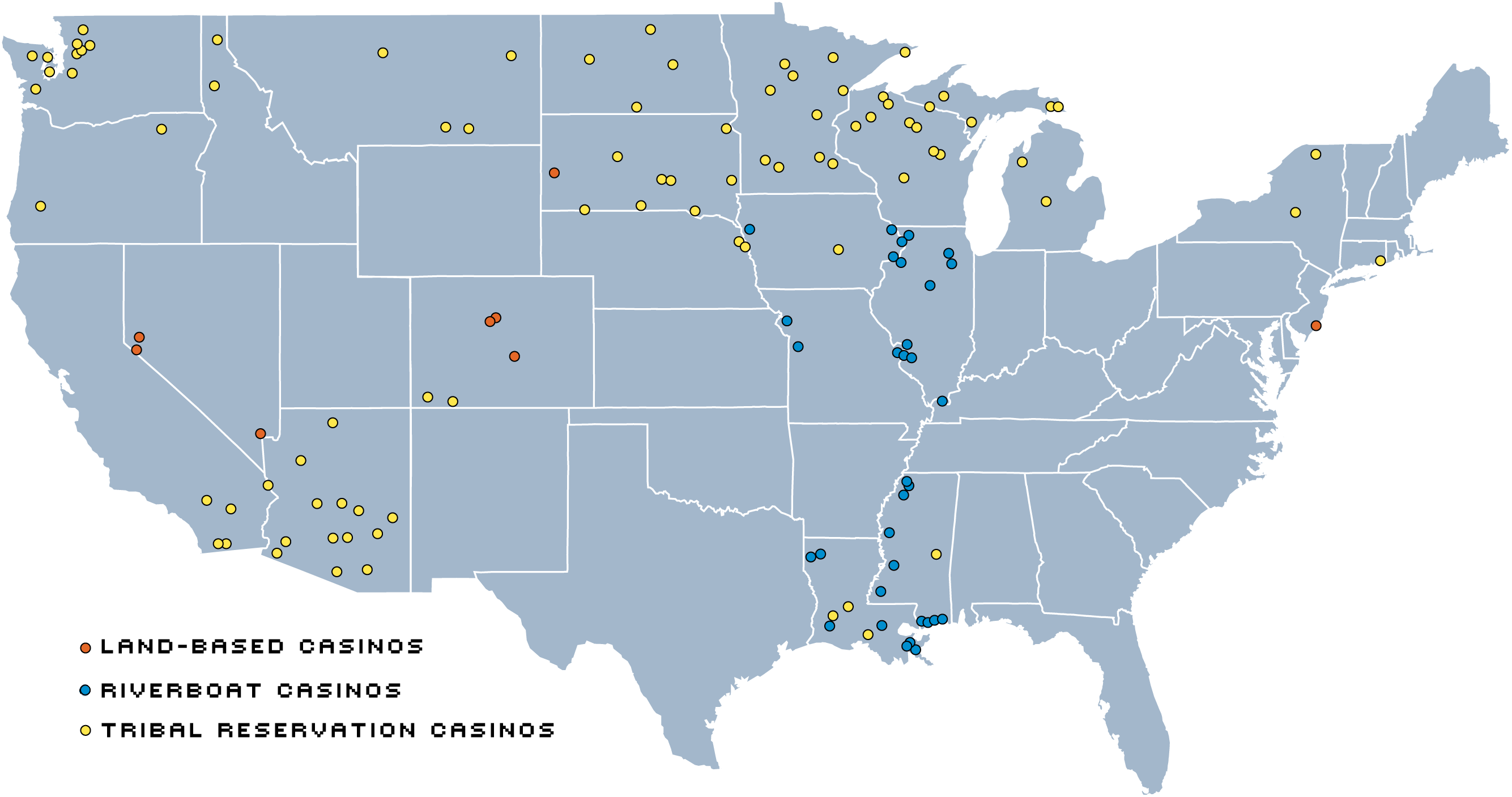- Legality – While traditional land-based casinos are subject to all state and federal laws, a 1979 Supreme Court decision ruled that states could not regulate activities on Indian reservations or tax their occupants. This was bolstered by a 1987 decision that said casino activities could not be state regulated as long as the type of gambling.
- Today, 29 counties still do not permit the on-premises sale of alcohol. 59 counties require a business to receive at least 30% of revenue from food sales to allow on-premises sale of alcohol. Only 17 counties allow general on-premises sales. Not all communities which allow off-premises sales allow sales on Sunday.
Casino gambling was legalized in Nevada in 1931 and it was the only state to offer that type of gambling until 1977 when New Jersey legalized casinos for its seaside resort town of Atlantic City. It is these land-based, stand-alone, casinos that were the original forms of casinos until riverboat and Indian casinos came along in the 1990s. When it comes to state taxes some states do not allow any gambling losses, even against gambling wins. This creates a unique situation. In Wisconsin, for example, you can win a million dollar jackpot and go on a gambling spree losing it all and end up with a huge state income tax bill because none of the losses can offset the win.

Today’s casino industry serves as a top job sector in numerous states. Inside a casino entertainment complex, it’s shared air for all the workers and visitors inside. Even one mid-sized casino complex can be a workplace for thousands of people. Plus, many thousands of visitors may be in the building at any given time for conventions, hotel stays, shopping, dining, or entertainment. The smoking status of casinos can have a significant impact on the health of a community since they often serve such a central role as both a workplace and gathering place in the community.
States That Allow Online Gambling
There is no safe level of exposure to secondhand smoke. Casino smoking areas, smoking rooms, and ventilation systems do not address the health hazards.
While 20 states and a growing number of cities now require all state regulated gambling venues to be smokefree indoors. There are more than 1,000 smokefree gambling venues in the U.S. including casinos in a growing number of sovereign Tribes. Casino operators have invested many billions of dollars into new smokefree indoor air casinos in recent years in states like Maryland, Massachusetts, Ohio, and New York.
Smokefree casinos in these and other states compete successfully against both smokefree and non-smokefree casinos in their respective regional markets. Smokefree indoor air is simply not a barrier to being a successful casino.
Current at least 87% of US adults are nonsmokers, including most casino goers. Even many people who do smoke don’t necessarily want to breathe other people’s smoke indoors.
Indoor secondhand smoke impacts the frequency and duration of nonsmoking customer visits and makes it harder to attract new customers for meetings, gaming, and non-gaming businesses.
What States Don't Allow Casinos
U.S. 100% SMOKEFREE STATE-REGULATED GAMBLING (MAP)

NEED MORE RESOURCES?
PLEASE VISIT OUR SISTER SITE:
What States Allow Online Gaming
Smokefreecasinos.org
We created this site entirely dedicated to the issue of smokefree casinos, with a blog, videos, guides, fact sheets, a smokefree casinos implementation kit with model policy, information on smokefree tribal casinos, and much, much more.